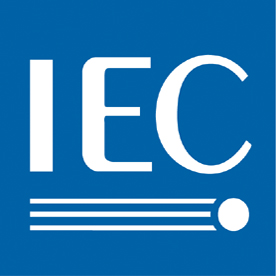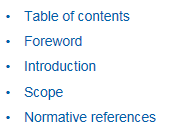IEC 61970-401:2022
Energy management system application program interface (EMS-API) - Part 401: Profile framework
Abstract
IEC 61970-401:2022 describes how IEC 61970-450 (all parts), IEC 61970-600 (all parts) profile specifications are structured and created. Profile specifications describe a subset of the Canonical CIM dedicated to a specific data exchange. The Canonical CIM is described in IEC 61970 300 (all parts) as well as in IEC 61968-11.
Rules for creation or extension of Canonical CIM are outside the scope of this document.
This document specifies the structure of a profile specification and the rules for selecting subsets of information from the Canonical CIM. It standardizes the operations used to create the profile elements from the Canonical CIM. As Canonical CIM is described in UML the operations are described in terms of UML classes, attributes, and roles.
It is possible to map UML to RDFS or OWL, so any of the languages UML, RDFS or OWL can be used to describe the created profiles. Specification of languages (UML, RDFS or OWL) used to describe profiles as well as how profiles are presented and edited in user interfaces are outside the scope of this document. Languages used to describe profiles are specified in other specifications. Relevant specifications are referenced in Clause 2.
UML supports adding free text that describes further restrictions on UML constructs, e.g. classes, attribute values, association roles and cardinalities. Languages such as OCL and SHACL are dedicated to describing constraints. OCL is used to describe constraints for object data described in UML while SHACL is used to describe constraints on graph data described by RDFS or OWL. OCL is within the scope of this document, but SHACL is not.
This document supports profiles describing data exchanged as CIMXML datasets or messages. The exchange format within the scope is in accordance with IEC 61970-552 but other formats are possible.
Tool interoperability and serialisation formats are outside the scope of this document.
This first edition cancels and replaces IEC TS IEC 61970-401 published in 2005. This edition constitutes a technical revision.
This edition includes the following significant technical changes with respect to the previous edition:
a) The previous edition of IEC TS 61970-401:2005 provided an overview of the Component Interface Specifications (CIS) IEC 61970-402, IEC 61970-403, IEC 61970-404, IEC 61970-405, and IEC 61970-407. IEC 61970-402 to IEC 61970-407 are duplicates of existing OPC interfaces from OPC Foundation and the DAIS/HDA interfaces from OMG. Hence IEC 61970-402 to IEC 61970-407 have been withdrawn and IEC TS 61970-401:2005 no longer serves a purpose.
b) IEC 61970-401 (this document) does not contain an overview of Component Interface Specifications (CIS) but instead a description of how to create profile specifications that describes dataset contents (or message contents). Hence it has been renamed "Profile framework". The profile specifications IEC 61970-450 (all parts) and IEC 61970-600 (all parts) describe dataset contents. The purpose of this document is to define the rules to be followed in the process of creating profile specifications.
Rules for creation or extension of Canonical CIM are outside the scope of this document.
This document specifies the structure of a profile specification and the rules for selecting subsets of information from the Canonical CIM. It standardizes the operations used to create the profile elements from the Canonical CIM. As Canonical CIM is described in UML the operations are described in terms of UML classes, attributes, and roles.
It is possible to map UML to RDFS or OWL, so any of the languages UML, RDFS or OWL can be used to describe the created profiles. Specification of languages (UML, RDFS or OWL) used to describe profiles as well as how profiles are presented and edited in user interfaces are outside the scope of this document. Languages used to describe profiles are specified in other specifications. Relevant specifications are referenced in Clause 2.
UML supports adding free text that describes further restrictions on UML constructs, e.g. classes, attribute values, association roles and cardinalities. Languages such as OCL and SHACL are dedicated to describing constraints. OCL is used to describe constraints for object data described in UML while SHACL is used to describe constraints on graph data described by RDFS or OWL. OCL is within the scope of this document, but SHACL is not.
This document supports profiles describing data exchanged as CIMXML datasets or messages. The exchange format within the scope is in accordance with IEC 61970-552 but other formats are possible.
Tool interoperability and serialisation formats are outside the scope of this document.
This first edition cancels and replaces IEC TS IEC 61970-401 published in 2005. This edition constitutes a technical revision.
This edition includes the following significant technical changes with respect to the previous edition:
a) The previous edition of IEC TS 61970-401:2005 provided an overview of the Component Interface Specifications (CIS) IEC 61970-402, IEC 61970-403, IEC 61970-404, IEC 61970-405, and IEC 61970-407. IEC 61970-402 to IEC 61970-407 are duplicates of existing OPC interfaces from OPC Foundation and the DAIS/HDA interfaces from OMG. Hence IEC 61970-402 to IEC 61970-407 have been withdrawn and IEC TS 61970-401:2005 no longer serves a purpose.
b) IEC 61970-401 (this document) does not contain an overview of Component Interface Specifications (CIS) but instead a description of how to create profile specifications that describes dataset contents (or message contents). Hence it has been renamed "Profile framework". The profile specifications IEC 61970-450 (all parts) and IEC 61970-600 (all parts) describe dataset contents. The purpose of this document is to define the rules to be followed in the process of creating profile specifications.
Additional information
| Publication type | International Standard |
|---|---|
| Publication date | 2022-05-30 |
| Edition | 1.0 |
| Available language(s) | English/French |
| TC/SC | TC 57 - Power systems management and associated information exchangerss |
| ICS | 33.200 - Telecontrol. Telemetering |
| Stability date | 2024 |
| Pages | 67 |
| File size | 2216 KB |
The following test report forms are related:
More information
Share this page
Share your publications
Learn how to share your publications with your colleagues, using networking options.
Payment information
Our prices are in Swiss francs (CHF). We accept all major credit cards (American Express, Mastercard and Visa, JCB and CUP), PayPal and bank transfers as form of payment.
Keep in touch
Keep up to date with new publication releases and announcements with our free IEC Just Published email newsletter.
Contact customer services
Please send your enquiry by email or call us on +41 22 919 02 11 between 09:00 – 16:00 CET Monday to Friday.

